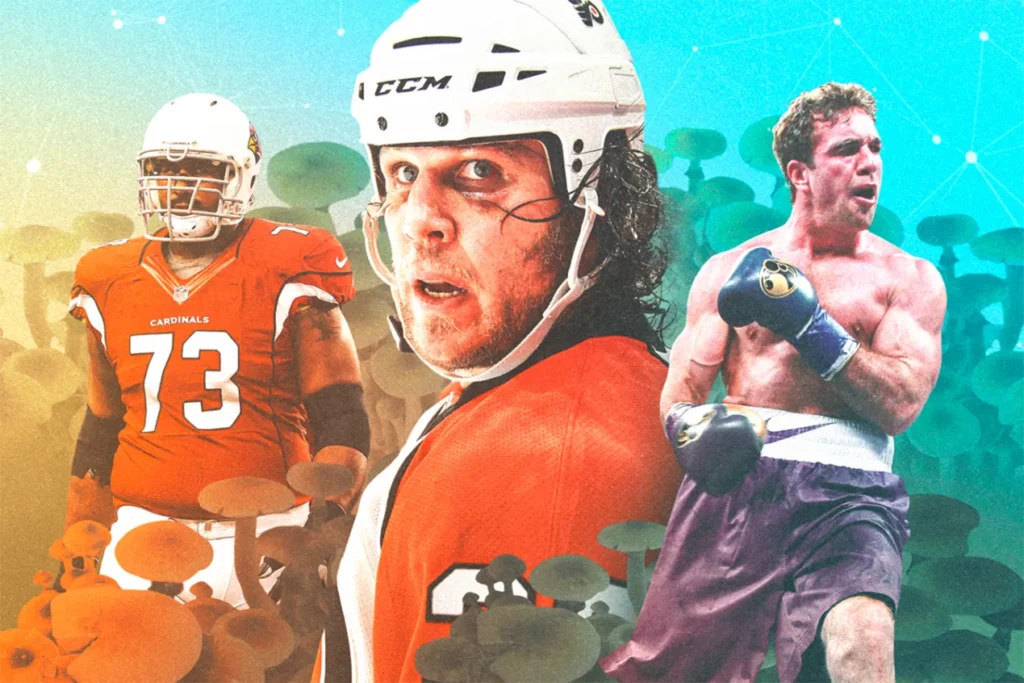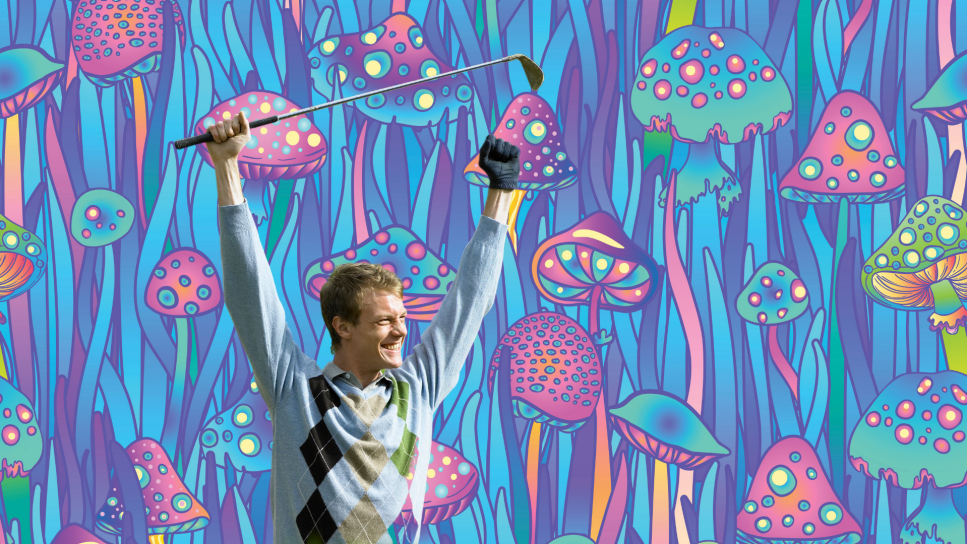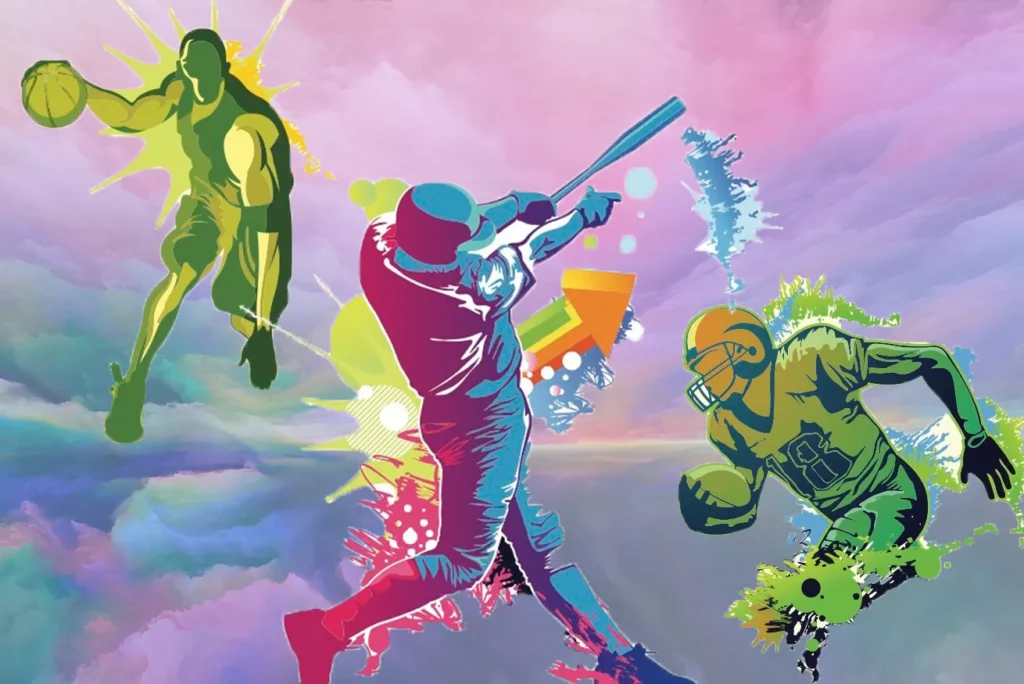
In the wake of life-altering injuries, a growing number of athletes are turning to unconventional methods for healing and recovery.
Among these approaches, psychedelics like magic mushrooms have emerged as an avenue for many athletes seeking relief and rehabilitation. This trend reflects a change in attitudes toward alternative therapies within the sports community as athletes explore new ways to address physical and psychological challenges.
Athletes’ Stories
An article published explored the utilization of psychedelics by athletes as a means to cope with life-altering sports injuries.
One story that stood out was a former Canadian ice hockey player. In his interview, he revealed the profound impact of his experiences: seven diagnosed concussions leading to symptoms resembling dementia, alongside battles with depression, anxiety, suicidal ideation, and chronic headaches. These challenges became so overwhelming that even basic outings with his children became daunting tasks.
He began delving into medical literature and stumbled upon a psilocybin investigation conducted by the Imperial College of London. Carcillo participated in a significant dosage ceremony for a recreational experience rather than engaging in a clinical trial.
In an interview he revealed his regimen of regularly microdosing psilocybin and occasionally indulging in larger doses. He also continues to monitor his health through routine brain scans and blood work.
Aside from taking psilocybin, he emphasizes the importance of regular exercise, conscientious sleep management, moderation in sugar and alcohol consumption, and sunlight exposure to maintain his vitality.

In the wake of life-altering injuries, a growing number of athletes are turning to unconventional methods for healing and recovery.
Among these approaches, psychedelics like magic mushrooms have emerged as an avenue for many athletes seeking relief and rehabilitation. This trend reflects a change in attitudes toward alternative therapies within the sports community as athletes explore new ways to address physical and psychological challenges.
Why Athletes Seek Psychedelics
Numerous professional athletes have explored substances ranging from ayahuasca to LSD as a means to enhance their well-being, especially regarding mental health concerns.
According to a study elite athletes face mental health challenges at rates comparable to or even exceeding those of the general population. Psychedelic therapy has shown promise in mitigating mental health issues among athletes. It helps particularly those stemming from common challenges such as therapeutic resistance, identity struggles during career transitions and injuries, and navigating interpersonal stress and conflicts.
Using psychedelics for mental health treatment is essential, especially for athletes. The brain regulates numerous bodily functions, including organ control, thought processing, emotional management, memory storage, speech facilitation, and movement coordination. Individuals facing diminished mental function may affect their performance and focus.

How Do Psychedelics React in the Brain to Provide Its So-called Benefits?
The effects of psychedelics can vary depending on the type consumed. Psilocin triggers serotonin 5-HT2a receptors located on cortical pyramidal cells within the brain.
According to a professor who has been researching psychedelics since the late 1960s, these cells serve as the major computational units of the brain, which is where everything comes together. Through activating these receptors, psilocin induces changes in brain metabolic activity and neuronal connectivity, which influences cognitive function and perception.
As for brain injury treatment, there are also various theories on how psychedelics might help. Classic psychedelics operate on serotonin receptors, known for their role in modulating inflammation, and also can suppress cytokine inflammatory cells. This dual action paves the way for increased blood flow to affected regions and fosters tissue recovery following injury. In animal studies, DMT has efficacy in mitigating brain injury stemming from artery occlusion.

Conclusion
Psychedelics like mushrooms have demonstrated promise in supporting the mental health of athletes following traumatic injuries and job-related pressures. They offer various avenues for symptom management, particularly when integrated with therapy. It yields encouraging and enduring outcomes, as evidenced by numerous studies.
- Athletes encounter mental health challenges at rates similar to, or in some cases, surpassing, those experienced by the general population.
- Psychedelics may contribute to neuron growth, potentially offering therapeutic avenues for individuals recovering from traumatic brain injuries.
- The main advantage of psychedelics lies in their ability to positively influence mental health, which provides support for athletes coping with the aftermath of injuries or intense pressure.




